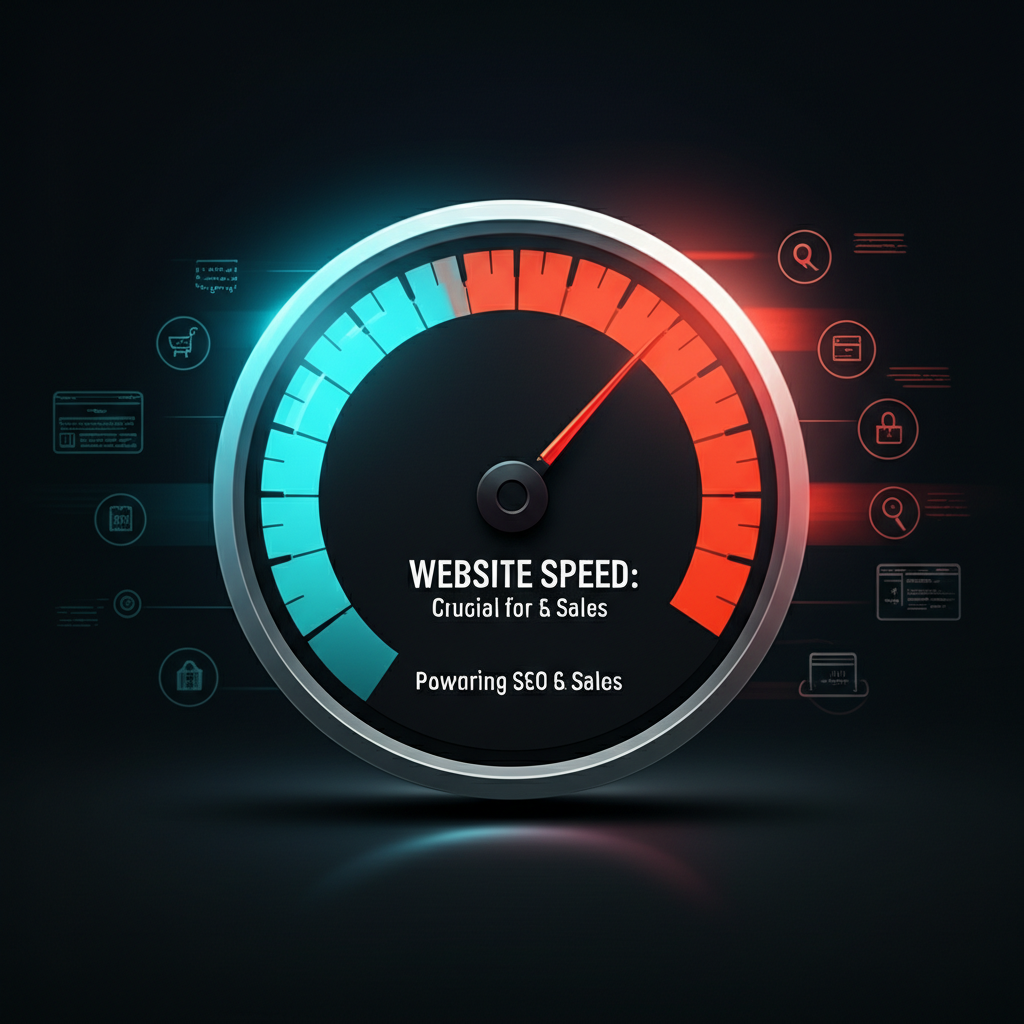- Why Website Speed Matters for SEO
- Crawl Rate and Indexing
- Bounce Rate
- Mobile-Friendliness
- The Impact of Website Speed on Sales
- User Experience and Patience
- Conversion Rates
- Brand Perception
- Optimizing Your Website Speed: Actionable Strategies
- Image Optimization
- Caching
- Minify CSS and JavaScript
- Choose the Right Hosting Plan
- Mobile Optimization
- Regularly Monitor and Test
Website Speed: Crucial for SEO & Sales
Website speed is a critical factor for both search engine optimization (SEO) and online sales. In today’s fast-paced digital world, users expect websites to load quickly and efficiently. A slow website can lead to a frustrating user experience, driving potential customers away and negatively impacting your search engine rankings. This article explores the importance of website speed, its impact on SEO and sales, and provides actionable strategies to optimize your website’s performance.
Why Website Speed Matters for SEO

Google has explicitly stated that page speed is a ranking factor for both desktop and mobile searches. A faster website contributes to a better user experience, and Google prioritizes websites that offer a positive experience to its users. Furthermore, website speed affects several other SEO metrics:
Crawl Rate and Indexing
Search engine bots, also known as crawlers, have a limited budget for crawling websites. A slow website can hinder the crawler’s ability to access and index all your pages. This can result in fewer pages being indexed, ultimately limiting your website’s visibility in search results.
Bounce Rate
A slow-loading website dramatically increases bounce rate, the percentage of visitors who leave a website after viewing only one page. A high bounce rate signals to search engines that your website isn’t providing relevant or engaging content, potentially lowering your rankings.
Mobile-Friendliness
With more users accessing the internet through mobile devices, mobile page speed is paramount. Google’s mobile-first indexing prioritizes the mobile version of your website for indexing and ranking. A slow mobile website significantly impacts your visibility in mobile search results.
The Impact of Website Speed on Sales
Beyond SEO, website speed directly affects your bottom line. A slow website can have a detrimental impact on your sales and conversion rates. Here’s how:
User Experience and Patience
Users are increasingly impatient. They expect websites to load within a few seconds. A delay of even a few seconds can lead to frustration and abandonment. Studies have shown a direct correlation between page load time and bounce rates, with even a one-second delay leading to a significant increase in bounces.
Conversion Rates
A faster website leads to higher conversion rates. When users can navigate your site quickly and easily, they are more likely to complete desired actions, such as making a purchase, filling out a form, or subscribing to your newsletter. Improving your website speed can directly translate into increased revenue.
Brand Perception
Website speed contributes to your overall brand perception. A slow and clunky website can project an image of unprofessionalism and unreliability, potentially damaging your brand reputation and customer trust.
Optimizing Your Website Speed: Actionable Strategies
Optimizing your website speed is an ongoing process, requiring continuous monitoring and adjustments. Here are some key strategies to implement:
Image Optimization
Images are often the largest contributors to page size. Optimize your images by compressing them without sacrificing quality. Use appropriate file formats (JPEG for photos, PNG for graphics with transparency) and implement lazy loading to load images only when they are visible in the viewport.
Caching
Caching stores static content like images, CSS, and JavaScript files on the user’s browser or server, significantly reducing the amount of data that needs to be downloaded on subsequent visits. Implement browser caching and consider using a Content Delivery Network (CDN).
Minify CSS and JavaScript
Minification removes unnecessary characters from your CSS and JavaScript files, reducing their size without affecting their functionality. This can significantly improve page load times.
Choose the Right Hosting Plan
Your hosting plan plays a crucial role in your website’s performance. Opt for a hosting plan that can handle your website’s traffic and resource demands. Consider upgrading to a more robust plan if you experience slow loading times.
Mobile Optimization
Ensure your website is optimized for mobile devices. Utilize responsive design, optimize images for mobile screens, and prioritize mobile-first indexing.
Regularly Monitor and Test
Regularly monitor your website’s speed using tools like Google PageSpeed Insights and GTmetrix. These tools provide valuable insights and recommendations for improvement. Continuously test and optimize your website to ensure optimal performance.
By prioritizing website speed, you are not only improving your search engine rankings but also enhancing the user experience, increasing conversions, and ultimately boosting your bottom line. Invest in optimizing your website speed – it’s a crucial investment for your online success.











Leave a Reply